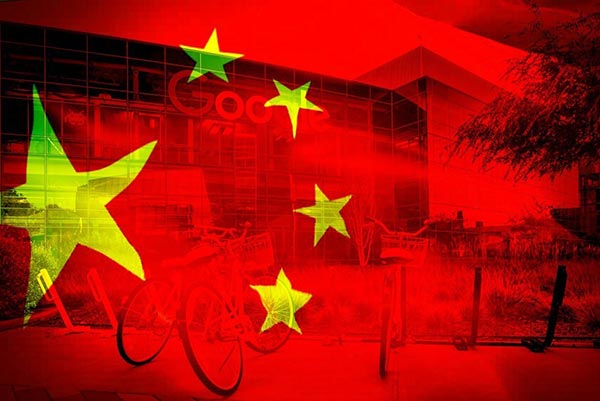
Advertisement
According to a new report, tech giants Amazon, Google and Microsoft have been caught providing tech services to several Chinese firms that were added to a U.S. blacklist last year. According to ZeroHedge, the report came out just hours after plans were announced to blacklist more than 30 more Chinese firms over their involvement with China’s state security apparatus.
The report came from Top10VPN, a site that reviews virtual private network (VPM) services and investigates topics on privacy. According to Top10VPN, it had identified U.S. technology giants that provided “essential web services” that power the websites of these blacklisted companies.
As part of their own coverage of the report, CNBC reached out to the firms named in the report as having provided services to these blacklisted companies. However, none were immediately available for comment.
Amazon, Google and Microsoft continue to provide services
In October 2019, a number of China’s most valuable surveillance and artificial intelligence firms were put on the U.S. Entity List — the same blacklist that Chinese telecom giant Huawei sits on. This move was designed to restrict their access to American technology.
According to the U.S. government, “these entities have been implicated in human rights violations and abuses in the implementation of China’s campaign of repression, mass arbitrary detention, and high-technology surveillance against Uighurs, Kazakhs, and other members of Muslim minority groups” in China’s Xinjiang region.
The region has made headlines for the detention and “re-education” camps that the Chinese regime has built that reportedly hold an estimated 1.5 million Muslims, most of them for violating a Chinese law meant to combat extremisms that have been described by Amnesty International as “highly restrictive and discriminatory.” (Related: Google LIED about scrapping plans to launch censored search engine for China; “Dragonfly” is still being developed in secret, employees say.)
According to the report, the services provided by the U.S. tech firms include hosting the Chinese surveillance firms’ websites and emails to providing authentication methods.
Specifically, Amazon and Google are providing web services to Dahua Technology and Hikvision, two blacklisted Chinese companies. Microsoft’s services, on the other hand, are reportedly being used by SenseTime and Megvii, two of the most valuable artificial intelligence start-ups in China.
“Through providing essential web services to these controversial companies, U.S. firms are playing a part in the proliferation of highly invasive surveillance products that have the potential to undermine human rights around the world,” said Simon Migliano, head of research at Top10VPN.
Top10VPN stated that it identified the U.S. firms providing services to the blacklisted Chinese companies using a combination of public tools to examine the source code of websites and analyze the traffic to those sites.
Other firms involved as well
While Amazon, Google and Microsoft were some of the biggest companies named in the report, they weren’t the only ones caught provided services to blacklisted companies. Top10VPN also identified a number of other U.S. companies in the report.
Among the named companies included website authentication and encryption companies Digicert, Lets Encrypt, Entrust and GeoTrust. Cybersecurity company Symantec, now known as NortonLifeLock, was also on the list, as well as content delivery company Stackpath and domain name hosting firm GoDaddy.
In addition, social media giants Facebook and Twitter were also named as having provided content delivery network services to Hikvision.
When asked by CNBC to comment on their presence in the report, Symantec, Verisign and NTT America declined to comment. As for the other companies, CNBC reports that they did not hear back from them.
Chinese surveillance firms have been caught up in the tensions between America and China. President Donald Trump’s administration has campaigned to cut these firms’ access to American technology.
However, Migliano claims that his company’s report shows that a relationship still remains between American and Chinese firms.
“Despite the Trump administration’s efforts to decouple the American and Chinese technology sectors, the continued presence of American companies in more discreet settings shows that cooperation between the two remains,” Migliano said.
Sources include:
Advertisement
Advertisements
















